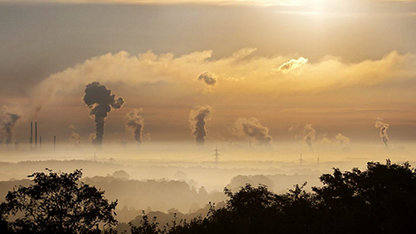- 98% of respondents single out material costs as impeding construction activity, with Labour shortages also an issue
- Transport and energy projects driving growth in infrastructure construction activity in the region - also a rise in construction of agribusiness
- Supply chain and skills shortages set to impact future workloads but feedback in Singapore upbeat compared to other areas of APAC
Construction activity in Singapore continues to grow, despite concerns over material costs and availability, and skills and labour shortages, according to the latest RICS Global Construction Monitor for Q1 2022.
Looking across all sectors in construction, a net balance of 22% of respondents reported a rise in workloads in Q1 2022, a continuation of the positive sentiment reported in Q4 2021 after the negative activity during the pandemic. Construction activity is mostly being driven by infrastructure, followed by construction of private residential projects.
As infrastructure and public works drive activity in the region, the focus is mostly on transport (45%) and energy (52%), with interestingly a large focus also on agribusiness (32%).
While construction activity and workloads are solid, the impact of global supply chain shortages is impeding activity. Indeed, this quarter +98% of respondents reported that material costs are a major constraint to current activity, higher than the global average. Also, access to those materials is reported to be an issue by over 83% of respondents. Labour and Skills shortages are also being felt heavily, and are weighing on activity, with anecdotal evidence also supporting this.
Anecdotal commentary from respondents highlights other factors impacting construction in the region, and these include closed borders and the lockdown in China, as well as delivery cost and time.
RICS Chief Economist, Simon Rubinsohn, commented: “The good news in the latest report is that the industry remains positive about the outlook for activity and that the generally upbeat mood can be seen not just in regard of infrastructure and housing development but also in the commercial sector. However, it is clear that the sector faces significant challenges which have been reflected in recent official data showing a sharp rise in vacancies across the construction industry. RICS numbers demonstrate these shortages are pretty much across the board including quantity surveyors and project managers as well as both skilled trades and more general labour. This, combined with problems around accessing building materials in the current environment, is exerting significant upward pressure on construction costs at the present time.”
-ENDS-
Notes for editors:
Explore some of our solutions to these market conditions:
The Global Construction and Infrastructure Conference will take place on Thursday 26th May 2022, which will look at how infrastructure can stimulate local economies, explore what’s needed in terms of investment to help countries absorb financial shocks and delve into how to solve the skills crisis through diversifying the sector.
We have a limited number of journalist spaces available for the conference, if you would like access, please contact abooth@rics.org
About RICS
We are RICS. Everything we do is designed to effect positive change in the built and natural environments. Through our respected global standards, leading professional progression and our trusted data and insight, we promote and enforce the highest professional standards in the development and management of land, real estate, construction and infrastructure.
Our work with others provides a foundation for confident markets, pioneers better places to live and work and is a force for positive social impact.
For more information:













